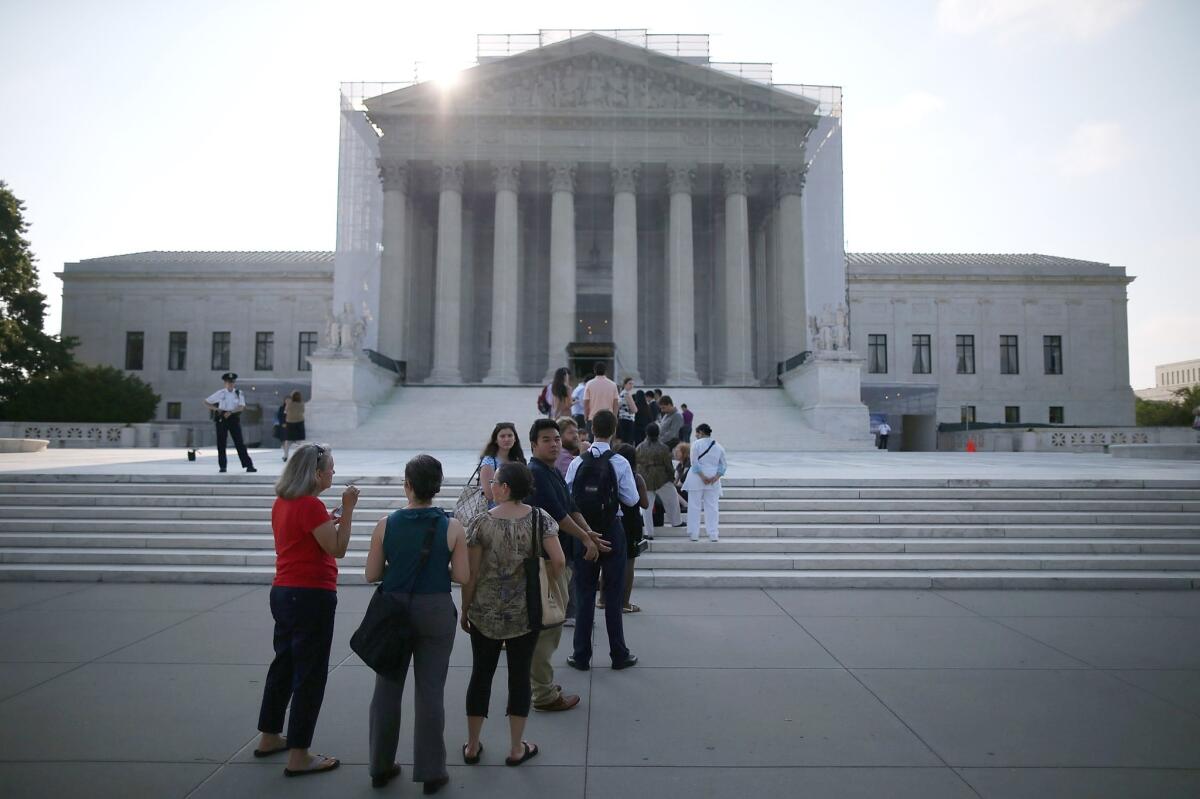Opening the door to warrantless searches

- Share via
When an occupant of a home refuses to allow police to search the premises, officers should keep their distance until they obtain a warrant based on probable cause. In a case from Los Angeles, the Supreme Court on Tuesday needlessly weakened that important 4th Amendment principle.
The 6-3 decision eviscerated a 2006 ruling in which the court ruled that police must respect “a physically present inhabitant’s express refusal of consent to a police search” even if a spouse or roommate gives consent.
Walter Fernandez, a robbery suspect, made it abundantly clear to LAPD officers in 2009 that he didn’t want them to search his apartment, saying: “You don’t have any right to come in here. I know my rights.”
Or at least he thought he did. Police arrested Fernandez, and an hour later an officer returned and asked Roxanne Rojas, Fernandez’ companion, for permission to search the apartment. The search turned up gang paraphernalia, a knife and a gun, and Fernandez was eventually convicted of robbery and domestic abuse.
In ruling that the search was valid, the Supreme Court purported to reaffirm its 2006 holding but redefined it almost out of existence. Writing for the majority, Justice Samuel A. Alito Jr. said that the earlier decision “applies only when the objector is standing in the door saying ‘stay out’ when officers propose to make a consent search.” Once the suspect leaves the property — even unwillingly in the back of a police cruiser — the objection becomes null and void.
Although the police may have had probable cause to arrest Fernandez, this rule will encourage police in other situations to arrest a suspect simply to overcome his refusal to consent to a search.
Ironically, as Justice Ruth Bader Ginsburg pointed out in her dissent, the LAPD “could readily have obtained a warrant to search the shared residence.” By blessing the warrantless search of Fernandez’s apartment, the majority not only undermined its previous ruling but also sent a message that police can skirt the 4th Amendment and not be punished for it by the courts.
More to Read
A cure for the common opinion
Get thought-provoking perspectives with our weekly newsletter.
You may occasionally receive promotional content from the Los Angeles Times.






